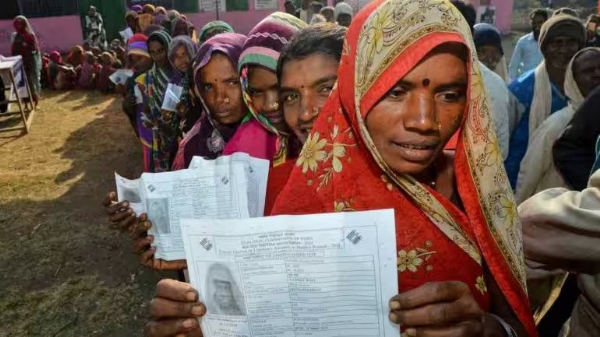Is Caste Census, A Dilemma?
Caste is always seen as a vote bank and this vote bank is captured by few politicians.
Total Views |
The issue of caste census has once again come to the fore. Political parties and organizations have been demanding a caste census for a long time while it is being opposed by another section as they have raised some genuine questions before the herculean task. The issue is expected to take priority as Bihar has decided to conduct a caste census. Significantly, this decision was taken at all party meetings, indicating political consensus. Bihar development is noteworthy on two counts.

States demand Caste Census
Firstly, Bihar Assembly had passed a resolution on the past two occasions. But it was not implemented. Secondly, there were different views among political parties in Bihar because of which the issue was almost shelved. Following the Bihar decision, political parties have demanded similar exercise in neighbouring Jharkhand, which was once part of Bihar. One of the senior leaders from Maharashtra has also emphasized the demand. It is likely to gain momentum as that party Is one of the ruling partners in the State.
Why Census is important data collection?
It is not merely a headcount but a collection of other information like housing, nutrition, employment, education etc. This data provides the specific information to formulate the policies and to ensure that benefits of development are taken to the needy groups. The first census was conducted in 1872 by British rule. It continued in independent India. Independent India had seven census and work on the eighth census in progress. Despite having a history of more than a century, the first caste census was conducted in 1911. But after Independence India had chosen to cover only Scheduled Caste (SC) and Scheduled Tribes (ST) while other castes were not included in the census. Both sides are making strong arguments to support their views.
Also Read: Caste Census - Pros & Cons
The Government of India has submitted an affidavit in the Supreme Court, indicating its reluctance to go for caste census. It is a reality that several types of information, which is collected during the census, is directly or indirectly related to the caste system. For example, education, nutrition, number of family members, employment or unemployment, housing, and several other factors certainly are different in the so-called upper caste and deprived class. All these factors are important to the development of the country and their precise information will certainly emerge as crucial inputs.
If we agree on proportionate representation, we do not have any strong reasons to shy away from collecting information in this regard as it will be inclusive, participative, and comprehensive. Those, who are in favour of caste census, fear that caste census data will be used only for political motivations. Their fear is also reasonable in view of our past experience. Caste is always seen as a vote bank and this vote bank is captured by few politicians. All of us are witness to the politics of identity nowadays. They fear that such exercise would flare up caste sensibilities, which will ultimately harm social unity and integrity. The argument being forwarded by this group is that it plays a crucial role in shaping mindset, which is not in accordance with modern sensibilities.
Also Read: Caste Census and Bharatiya Value System
Notwithstanding ideological differences, some practical difficulties cannot be brushed aside. For example, how the caste will be defined? In a country like India, a particular caste is known with different names even within the same state. We also have castes, which are SCs in one state and OBCs in other states. Also, there are sub-groups within every caste. This has also a religious angle, which needs to be attended with adequate seriousness without any other considerations. It is a sociological reality that the birth rate in the section of society, which has gained progress, is always lower. These people may not want to know their own numerical strength for obvious reasons.
Conclusion
Caste census has potential to bring about drastic changes on social and political front. But everybody must keep in mind our ultimate aim. The aim is to have an equal and cohesive society. We must aim for a society, where everybody will get equal opportunity. Our primary objective is to emancipate ourselves from the shackles of caste


